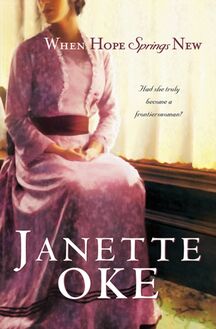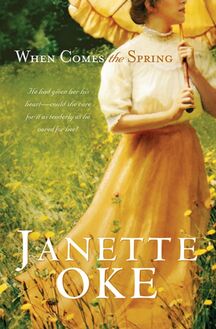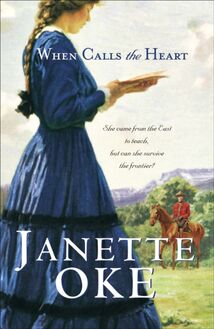-
 Univers
Univers
-
 Ebooks
Ebooks
-
 Livres audio
Livres audio
-
 Presse
Presse
-
 Podcasts
Podcasts
-
 BD
BD
-
 Documents
Documents
-
- Cours
- Révisions
- Ressources pédagogiques
- Sciences de l’éducation
- Manuels scolaires
- Langues
- Travaux de classe
- Annales de BEP
- Etudes supérieures
- Maternelle et primaire
- Fiches de lecture
- Orientation scolaire
- Méthodologie
- Corrigés de devoir
- Annales d’examens et concours
- Annales du bac
- Annales du brevet
- Rapports de stage
La lecture à portée de main
Vous pourrez modifier la taille du texte de cet ouvrage
Découvre YouScribe en t'inscrivant gratuitement
Je m'inscrisDécouvre YouScribe en t'inscrivant gratuitement
Je m'inscrisEn savoir plus
Vous pourrez modifier la taille du texte de cet ouvrage
En savoir plus

Description
Sujets
Informations
| Publié par | Baker Publishing Group |
| Date de parution | 01 février 2005 |
| Nombre de lectures | 0 |
| EAN13 | 9781585587421 |
| Langue | English |
Informations légales : prix de location à la page 0,0202€. Cette information est donnée uniquement à titre indicatif conformément à la législation en vigueur.
Extrait
© 1983 by Janette Oke
Published by Bethany House Publishers 11400 Hampshire Avenue South Bloomington, Minnesota 55438 www.bethanyhouse.com
Bethany House Publishers is a division of Baker Publishing Group, Grand Rapids, Michigan. www.bakerpublishinggroup.com
Ebook edition created 2011
Ebook corrections 03.09.2017, 05.28.2019
All rights reserved. No part of this publication may be reproduced, stored in a retrieval system, or transmitted in any form or by any means—electronic, mechanical, photocopying, recording, or otherwise—without the prior written permission of the publisher. The only exception is brief quotations in printed reviews.
Library of Congress Cataloging-in-Publication Data is on file at the Library of Congress, Washington, D.C.
ISBN 978-1-5855-8742-1
Cover by Dan Thornberg
To my oldest sister, Elizabeth Margaret (Betty) Cox, for having the patience to let me “pull the needle,” and for many other reasons.
Contents
Cover
Title Page
Copyright Page
Dedication
Preface
1. Elizabeth
2. The First Step
3. On the Way
4. Calgary
5. Family
6. Introductions
7. Mr. Higgins’ Plan
8. The New School
9. The Wilderness
10. Lars
11. The Petersons
12. Trip to Town
13. Saturday
14. Sunday
15. School Begins
16. Joint Tenants
17. Sunday Service
18. Letters
19. The Living Mousetrap
20. A Visitor
21. Pupils
22. The School Stove
23. Plans
24. Napoleon
25. The Box Social
26. Andy
27. School Break
28. Dee
29. Return to School
30. The Christmas Program
31. Christmas Eve
32. Christmas Day
33. The Confession
34. Return to Pine Springs
35. Spring
36. School Ends
About the Author
Books by Janette Oke
Children's Books by Janette Oke
Back Cover
Preface
I would like to supply my readers with a few facts concerning the North West Mounted Police. The Force was founded in 1873 as an answer to the problem of illicit liquor trade and lawlessness in the West. It has been said that the Mountie was dressed in a red coat to readily set him apart from the U.S. Cavalry. The Mountie’s job was to make peace with the Indians, not to defeat them; and many of the Indian tribes which he had to deal with had already had run-ins with the troops from south of the border. Whether for this reason, or some other, the scarlet tunic soon became distinctive, and set apart the man who was wearing it.
The uniform and the name both evolved. The title of Royal North West Mounted Police was granted by King Edward VII in 1904, in recognition of the Force’s contribution to Canada. In 1920, the name was changed to Royal Canadian Mounted Police. Eventually, the red coat was adopted as the dress uniform of the Force, and a more practical brown coat was chosen for regular duty, because, said Superintendent Steele, it was “almost impossible for even a neat and tidy man to keep the red coat clean for three months on the trail.” The hat also changed from the original pill-box, through various shapes and designs, to the Stetson that was approved in 1901.
It was the Yukon Gold Rush of 1895 that first brought the Mounties into the Far North. By 1898 there were twelve officers and 254 sergeants and constables in the Yukon. The Mounted Police by then were using a new form of transportation—the dog team. With the use of their huskies, they policed hundreds of square miles of snow-covered territory. Trappers, traders and Indian villages were scattered throughout their areas of patrol.
Although I try not to be too sentimental when I think of the Mounties and their part in the development of the Canadian West, to me, they are a living symbol of my Canadian home-land. To the people of the Lacombe area, may I assure you that among the names of Spruceville, Blackfalds, Brookfield, Turville and Iowalta; Woody Nook, Jones Valley, Canyon and Eclipse; Eureka, Spring Valley, Arbor Dale and Blindman; Central, West Branch, Birch Lake and Lincoln; Milton, Mt. Grove, Sunny Crest and Morningside; Gull Lake, Lakeside and Fairview; you will find no Pine Springs. Nor will you find a historic character that matches Pearlie’s pa in the town of Lacombe itself. All of the characters in the story are fictional, with no intended likenesses to anyone either living or dead.
May I also assure you that having grown up in the Hoadley area and having spent my early school years in the little one-room school at Harmonien, I have a great deal of love for and many fond memories of rural Alberta community life.
Chapter One
Elizabeth
It came as a great surprise to me. Oh, not the letter itself. We were all used to the arrival of letters from brother Jonathan. They came quite regularly and always caused a small stir in our household. No, it wasn’t the letter, but rather what it contained that caught me completely off guard. And Mother’s response to it was even more astounding.
The day, April 12, 1910, had started out like every other day. I arose early, had a quiet prayer time in my room, cared for my grooming, breakfasted with the family, and left at 8:00 to walk the eleven blocks to the school where I taught. I had made it a habit to be there early so that I would have plenty of time to make my morning preparations before the students arrived. I was usually the first teacher to make an appearance, but I rather enjoyed the early morning quietness of the other-wise noisy building.
As I walked along on that delightful spring morning, the world appeared especially beautiful and alive. For some reason, the flower-scented air and the song of the birds caused me to take a rare look at my inner self.
And how are you this delightful spring morning? I asked myself.
Why, I am just fine, thank you, I silently answered, and then almost blushed as I quickly looked around for fear that someone might be able to read my thoughts. It wasn’t like me to talk to myself—even inwardly, especially when walking along this public, maple-sheltered street. But no one shared the sidewalk with me at the moment so the self-dialogue continued.
Are you now? And what is it that makes your day so glorious—your step so feather-light?
The morning; life itself; the very fragrance of the air I breathe.
’Tis nice—but, then, you have always been a soul who took pleasure in just being alive. I do declare that you would be happy and contented anywhere on God’s green earth.
No—not really. Not really.
The sudden turn of the conversation and the switch of my emotion surprised me. There was a strange and unfamiliar stirring deep within me. A restlessness was there, begging me to give it proper notice. I tried to push it back into a recessed corner of my being, but it elbowed its way forward.
You’re always doing that! it hotly declared. Whenever I try to raise my head, you push me down, shove me back. Why are you so afraid to confront me?
Afraid?
Yes, afraid.
I’m not afraid. It’s just that I believe—I’ve been taught—that one ought to be content with what one has, especially if one has been as blessed as I. It is a shame—no, a sin—to feel discontented while enjoying all of the good things that life—and Papa—have showered upon me.
Aye, t’would be a sin to disregard one’s blessings. I should never wish you to do so. But perhaps, just perhaps, it would quiet your soul if you’d look fairly and squarely at what makes the empty little longing tug at you now and then.
It was a challenge; and though I still felt fearful, and perhaps not a little guilty, I decided that I must take a look at this inner longing if the voice was ever to be stilled.
I was born Elizabeth Marie Thatcher on June 3, 1891, the third daughter to Ephraim and Elizabeth Thatcher. My father was a merchantman in the city of Toronto and had done very well for himself and his family. In fact, we were considered part of the upper class, and I was used to all of the material benefits that came with such a station. My father’s marriage to my mother was the second one for her. She had first been married to a captain in the King’s service. To this union had been born a son, my half brother, Jonathan. Mother’s first husband had been killed when Jonathan was but three years old; Mother therefore had returned to her own father’s house, bringing her small son with her.
My father met my mother at a Christmas dinner given by mutual friends. She had just officially come out of mourning, though she found it difficult to wrap up her grief and lay it aside with her mourning garments. I often wondered just what appealed most to my father, the beauty of the young widow or her obvious need for someone to love and care for her. At any rate, he wooed and won her, and they were married the following November.
The next year my oldest sister, Margaret, was born. Ruthie then followed two years later. Mother lost a baby boy between Ruthie and me, and it nearly broke her heart. I think now that she was disappointed that I wasn’t a son, but for some reason I was the one whom she chose to bear her name. Julie arrived two years after me. Then, two and a half years later, much to Mother’s delight, another son was born, our baby brother, Matthew. I can’t blame Mother for spoiling Matthew, for I know full well that we shared in it equally. From the time that he arrived, we all pampered and fussed over him.
Our home lacked nothing. Papa provided well for us, and Mother spent hours making sure that her girls would grow into ladies. Together my parents assumed the responsibility for our spiritual nurturing and, within the proper boundaries, we were encouraged to be ourselves.
Margaret was the nesting one of the family. She married at eighteen and was perfectly content to give herself completely to making a happy home for her solicitor husband and their little family. Ruth was the musical one, and she was encouraged to develop her talent as a pianist under the tutorship of the finest teachers available. When she met a young and promising violinist in New York and decided that she would rather be his accompanist
-
 Univers
Univers
-
 Ebooks
Ebooks
-
 Livres audio
Livres audio
-
 Presse
Presse
-
 Podcasts
Podcasts
-
 BD
BD
-
 Documents
Documents
-
Jeunesse
-
Littérature
-
Ressources professionnelles
-
Santé et bien-être
-
Savoirs
-
Education
-
Loisirs et hobbies
-
Art, musique et cinéma
-
Actualité et débat de société
-
Jeunesse
-
Littérature
-
Ressources professionnelles
-
Santé et bien-être
-
Savoirs
-
Education
-
Loisirs et hobbies
-
Art, musique et cinéma
-
Actualité et débat de société
-
Actualités
-
Lifestyle
-
Presse jeunesse
-
Presse professionnelle
-
Pratique
-
Presse sportive
-
Presse internationale
-
Culture & Médias
-
Action et Aventures
-
Science-fiction et Fantasy
-
Société
-
Jeunesse
-
Littérature
-
Ressources professionnelles
-
Santé et bien-être
-
Savoirs
-
Education
-
Loisirs et hobbies
-
Art, musique et cinéma
-
Actualité et débat de société
- Cours
- Révisions
- Ressources pédagogiques
- Sciences de l’éducation
- Manuels scolaires
- Langues
- Travaux de classe
- Annales de BEP
- Etudes supérieures
- Maternelle et primaire
- Fiches de lecture
- Orientation scolaire
- Méthodologie
- Corrigés de devoir
- Annales d’examens et concours
- Annales du bac
- Annales du brevet
- Rapports de stage










